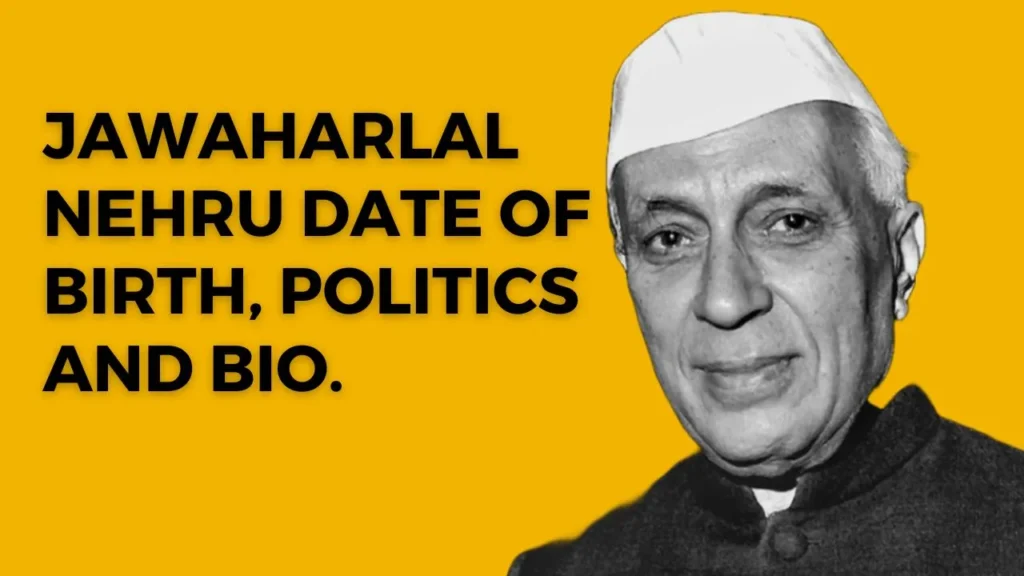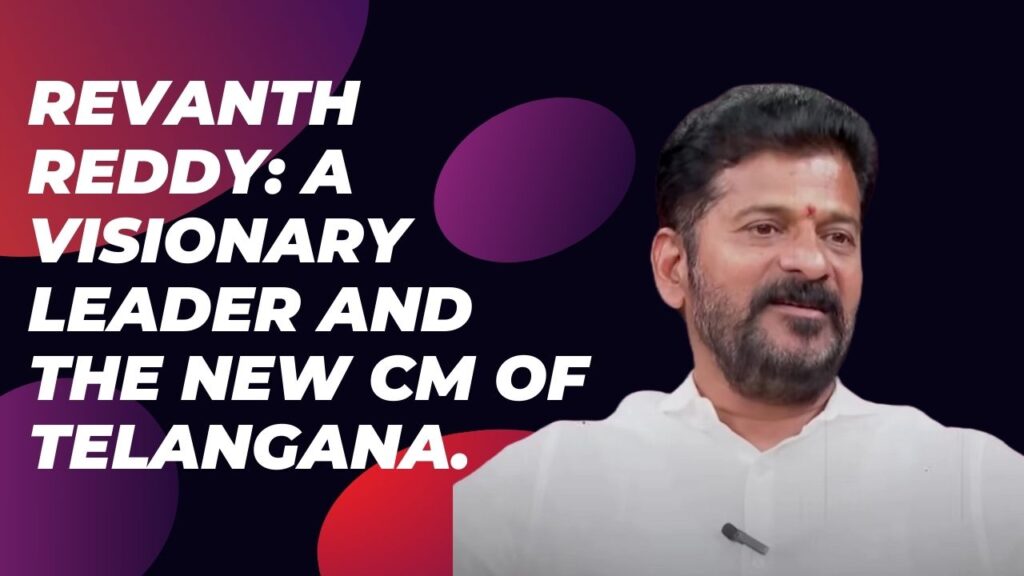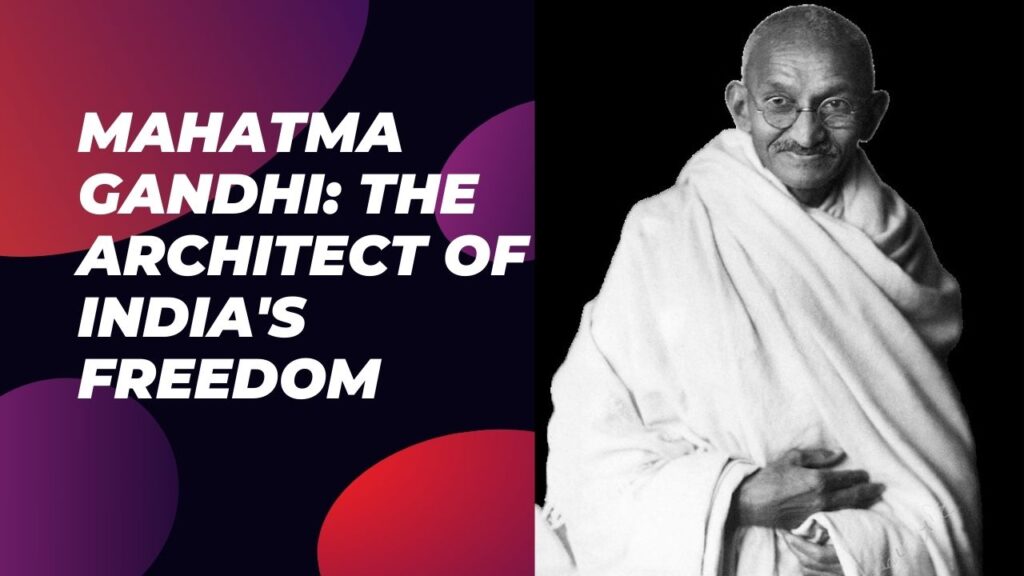Introduction: Jawaharlal Nehru Date of Birth, Prime Ministership, Personal Life, Politics and More.
Jawaharlal Nehru was the first Prime Minister of independent India., He played a key role in shaping the nation’s first steps into freedom and democracy. In this blog post, we explore his life, political career, and his impact on the Indian subcontinent. We will also understand more about Jawaharlal Nehru date of birth, political beliefs, policies he initiated, family and other details.

FAQs about Jawaharlal Nehru Date of Birth, Family Lineage, Congress Party.
What is Jawaharlal Nehru date of birth?
Jawaharlal Nehru date of birth is November 14th, 1889.
Where was he born?
He was born in the city of Allahabad, British India (now in Uttar Pradesh, India).
Who were his parents?
His father’s name was Motilal Nehru and his mother was Swarup Rani Nehru.
What was his father’s occupation?
Motilal Nehru was a famous lawyer and an influential political leader in the Indian National Congress.
Can you provide details about his family lineage?
He hailed from a Kashmiri Pandit family with a rich political and intellectual lineage.
Did he have siblings?
He had 2 sisters – Vijaya Lakshmi and Krishna. Vijaya Lakshmi was the first female president of the United Nations General Assembly. Krishna Hutheesing was a writer and authored many books.
What were his educational qualifications?
He was educated at Harrow School in England and later studied at Trinity College, Cambridge. He qualified for the bar at Inner Temple.
Can you share information about his wife and children?
He was married to Kamala Nehru, and they had one daughter, Indira Priyadarshini Nehru. She became the first female Prime Minister of India.
How did he start his political journey in the Indian National Congress?
He entered politics under the guidance of his father, Motilal Nehru. He became actively involved in the Indian National Congress during the early 20th century.
What was the first significant position held by him in the Indian National Congress?
He served as the General Secretary of the All-India Congress Committee (AICC) in the 1920s.
Prime Minister, Awards, Milestones and Non-Aligned Movement.
What were his achievements during the freedom struggle?
He played an active role in India’s independence struggle. He advocated for Purna Swaraj (complete self-rule) and participated in various civil disobedience movements.
When did he become the first Prime Minister of India?
He became the Prime Minister of India on August 15, 1947, following India’s independence. He continued to hold the position until 1964.
What were the key policies introduced by him during his tenure as Prime Minister?
He implemented policies such as the Five-Year Plans for economic development, land reforms, and the establishment of public sector industries.
How did he contribute to nation-building after independence?
His government focused on industrialization, educational reforms, and the promotion of a secular democratic framework. These steps laid the foundation for modern India.
What were some of the major milestones of his time?
He witnessed the formation of the Republic of India, the framing of the Indian Constitution. Initiation of key infrastructure projects also happened during this time.
Did he receive any awards or recognition for his contributions?
He was awarded the Bharat Ratna in the year 1955 for his outstanding services to the nation.
What were his views on secularism and diversity in India?
He was a staunch advocate of secularism. He promoted the idea of a pluralistic and inclusive India that respected all religions and cultures.
How did he contribute to the Non-Aligned Movement?
He played a major role in the formation of the Non-Aligned Movement. It advocated for global peace and independence from Cold War alliances.
Building the Nation, Reforms, New Institutions in Public Sector.
What were his contributions to science and technology in India?
He laid the foundation for scientific and technological advancements. He established renowned institutions like the Indian Institutes of Technology (IITs).
How did he address challenges such as poverty and unemployment in India?
He initiated economic policies and plans to address poverty, unemployment and social inequalities.
What was his stance on education and literacy in India?
He emphasized the importance of education and literacy as components of social progress and national development.
How did he contribute to the preservation of India’s cultural heritage?
He established institutions to preserve and promote India’s cultural heritage, supporting initiatives in art, literature, and historical preservation.
What was his vision for foreign policy and international relations?
His foreign policy aimed at promoting peace, friendship, and non-alignment. It helped foster diplomatic ties with various nations.
How did he address the issue of agrarian reforms in India?
Nehru introduced land reforms to address agrarian issues, aiming to redistribute land to the landless and improve rural livelihoods.
What is his legacy in Indian politics and governance?
His contributions to nation-building, secularism, and democratic governance shaped the course of Indian politics post-independence.
Provide names of some institutions conceptualized and developed during his reign?
Bharat Heavy Electricals Limited, Bhakra-Nangal dam, All India Institute of Medical Sciences, LIC, Oil and Natural Gas Corporation, Indian Oil Corporation, National Library of India and the National Institute of Design.
Indo-China War, Political Challenges and Legacy.
How did he deal with internal challenges and conflicts in India?
He advocated for a strong and unified India, addressing internal challenges through dialogue and inclusive policies.
What was his role during the Indo-China War of 1962?
He faced criticism for the handling of the war. His leadership during the conflict remains a subject of historical analysis and debate.
How did he contribute to the upliftment of marginalized communities in India?
His policies included affirmative action for marginalized communities, promoting social justice and inclusivity.
What was his stance on nuclear disarmament and global peace?
He advocated for nuclear disarmament and international cooperation to achieve lasting global peace.
Did he write any books or literary works?
He was a passionate writer and author of several books, including his autobiography, “The Discovery of India.”
How did he address the issue of industrialization in India?
Nehru emphasized industrialization as a key driver of economic growth and helped establish many public sector organisations.
What challenges did he face during his political career?
He faced challenges such as partition, economic disparities, and regional conflicts. His government navigated these complexities with a commitment to unity.
What is his impact on the political landscape of India?
He laid the foundation for India’s democratic institutions, economic policies, and commitment to social justice. His impact on India’s progress was immense.
Conclusion:
Jawaharlal Nehru is known to be a visionary leader and the architect of modern India. Through this blog, we gain a comprehensive understanding of Jawaharlal Nehru date of birth, family, politics, struggles, ideals, and contributions. He helped shape India’s first steps as a sovereign, socialist, and secular republic. He continues to remain a pivotal figure in Indian political history. Dear readers, you may read our blogs from the “Home” page of our website. Our blogs are available in over 20 different languages.


